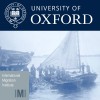'All the money I raised, I raised from Ghana': Understanding reverse remittance practice among Ghanaian migrants in the UK and their relatives in Ghana
Remittances have acquired considerable significance on the agendas of development establishments, especially the World Bank and the International Monetary Fund (IMF) since the turn of the century. The widespread attention that remittances sent from ‘developed’ to ‘developing’ countries have received has, however, ignored the fact that many remittances are sent in the opposite, or reverse, direction. Such reverse remittances can be conceptualised as transfers, which move from poor migrant origin areas to migrants in wealthy destination areas. This practice has been largely under-represented in what is now an extensive remittance literature. I investigate the other side of transnational economic exchanges between migrants and their relatives. Using a matched sampling methodological approach, I interviewed 70 Ghanaian migrants in the UK and 51 of their relatives in Ghana who come from diverse socio-economic backgrounds. This research finds that transnational economic transactions between migrants and their relatives are driven by their differential access to various forms of capital and their motivation for migration. These factors influence whether a migrant will send remittances or receive reverse remittances instead.




